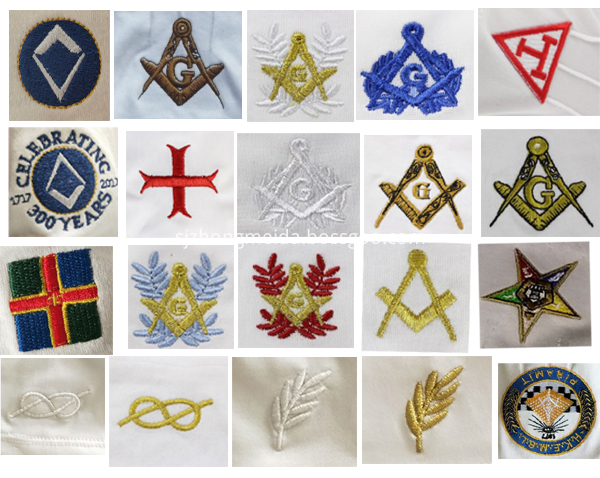As the Indian garment export industry employs child labor, the U.S. government has blacklisted India for the third consecutive year, which has raised even greater doubts about the future purchase of global brands in India. Although Indian exporters tried several times to convince the U.S. government that this was not the case, the list of executive orders still included India.
Rajendra Hinduja, head of the Gokaldas export company headquartered in Bangalore, said: “So no matter which global brand we do business with, we have to prove that we are not guilty.†This company's customers include: Nike, Reebok, and the old Navy, Abercrombie and Fitch, Adidas, Diesel and Levi's.
While 40 companies in southern India employ 37,000 people, Hinduja predicts that Indian garment exporters will have to do a lot of textual work in the coming days. As a result of the US Executive Order 13126, the Indian apparel export industry, worth US$11.16 billion, will be challenged because Western consumers are very sensitive and resist boycotts made in sweatshops.
As the United States issues a formal child labor statement, brand companies will need to explain their trade with India. The United States will submit a cautionary notice to them stating that they must perform due diligence (Due Diligence, DD) before doing trade with India. India’s contribution to the global apparel trade is 3%, and India receives 30% of its trade from US consumers. The list of executive orders prevented tainted countries from doing business with the federal government in certain areas. The current list is published by the U.S. Department of Labor on May 31, 2011.
Industry insiders believe that the list makers did not distinguish domestic industry from exporters. Exporters say that although sarees and Zari embroidery companies have employed child labor in the Indian market, the garment export industry has acquired a bad reputation. Last month, the Indian Garment Export Promotion Committee refuted the United States, but it was too late to recover the overall situation.
The United States once raised a suspicion in a report that it claimed that there were 4 child laborers in India’s 6.7 million garment export industry. For the time being, it does not say that trade with the U.S. government is marked as an industry that employs child labor, which will seriously hinder India’s future trade.
A clothing company official said that due to the wrong information issued by the Indian garment industry, customers are now increasingly monitoring the factory. Brand companies send independent agencies to monitor Indian companies. At least three brands visit the factory every week to talk with employees, understand working conditions, overtime and forced labor conditions. After being blacklisted by the United States, Indian exporters will find it difficult to get new orders.
Rajendra Hinduja, head of the Gokaldas export company headquartered in Bangalore, said: “So no matter which global brand we do business with, we have to prove that we are not guilty.†This company's customers include: Nike, Reebok, and the old Navy, Abercrombie and Fitch, Adidas, Diesel and Levi's.
While 40 companies in southern India employ 37,000 people, Hinduja predicts that Indian garment exporters will have to do a lot of textual work in the coming days. As a result of the US Executive Order 13126, the Indian apparel export industry, worth US$11.16 billion, will be challenged because Western consumers are very sensitive and resist boycotts made in sweatshops.
As the United States issues a formal child labor statement, brand companies will need to explain their trade with India. The United States will submit a cautionary notice to them stating that they must perform due diligence (Due Diligence, DD) before doing trade with India. India’s contribution to the global apparel trade is 3%, and India receives 30% of its trade from US consumers. The list of executive orders prevented tainted countries from doing business with the federal government in certain areas. The current list is published by the U.S. Department of Labor on May 31, 2011.
Industry insiders believe that the list makers did not distinguish domestic industry from exporters. Exporters say that although sarees and Zari embroidery companies have employed child labor in the Indian market, the garment export industry has acquired a bad reputation. Last month, the Indian Garment Export Promotion Committee refuted the United States, but it was too late to recover the overall situation.
The United States once raised a suspicion in a report that it claimed that there were 4 child laborers in India’s 6.7 million garment export industry. For the time being, it does not say that trade with the U.S. government is marked as an industry that employs child labor, which will seriously hinder India’s future trade.
A clothing company official said that due to the wrong information issued by the Indian garment industry, customers are now increasingly monitoring the factory. Brand companies send independent agencies to monitor Indian companies. At least three brands visit the factory every week to talk with employees, understand working conditions, overtime and forced labor conditions. After being blacklisted by the United States, Indian exporters will find it difficult to get new orders.
Custom Embroidered Formal Gloves With Masonic LOGO
Square compass
Regalia white Cotton Gloves
Size: S, M, L, XL
Package: 1 pair per opp bag with paper card inside
| Material: | 100% polyester |
| Lining: | Unlined |
| Color: | White and black |
| Size: | mens, womens |
| Logo: | Embroidery, different logo is available |
| Usage: | Masonic members, freemanson |

Embroidery Cotton Gloves,Masonic Dress Gloves,Embroidery Polyester Gloves,Cotton Masonic Gloves
Shijiazhuang Hongmeida Co., Ltd. , http://www.hmd-gloves.com